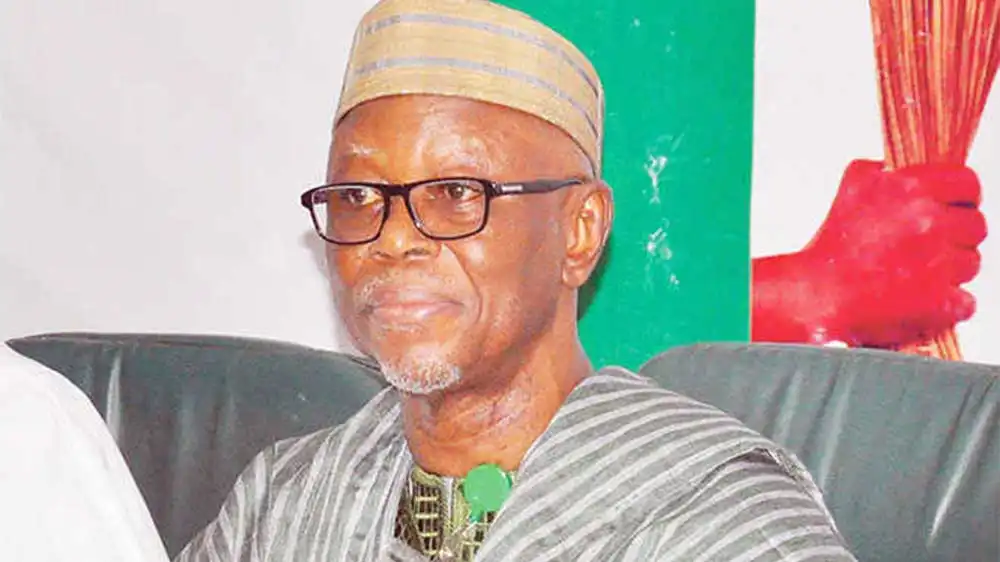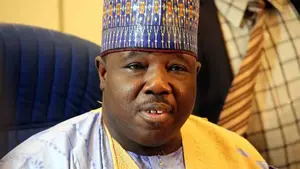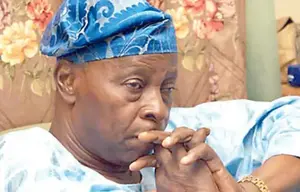
Odigie -Oyegun
Except for the 2012 governorship polls when the election was between three political parties, the Peoples Democratic Party (PDP), the Labour Party (LP) and the defunct Action Congress of Nigeria (ACN), the contest for Ondo State top job has always been a two-horse race.
The current parade of a total of 66 aspirants split between the ruling PDP and the opposition All Progressive Congress (APC) in the preparation towards the November 26, 2016 election is already creating the impression that the exercise, this time around, would be a straight contest between the two frontline political parties. The APC has 54 aspirants while the PDP has 12, spread across the state’s three senatorial zones.
Yet a third force in the Social Democratic Party (SDP), considered as one of the fringe parties, is appearing on the political horizon to create a repeat of the 2012 scenario.
The leading aspirants in the APC from the Northern Senatorial District include pioneer Director General of the National Space Research and Development Agency (NARSDA) and second-term Senator, Robert Ajayi Boroffice; a member of the party’s Board of Trustees (BOT), Chief Jamiu Ekungba; former Special Duties Commissioner, Niran Sule-Akinsuyi; and former National President of the Nigerian Bar association (NBA), Rotimi Akeredolu who was also candidate of the ACN in the 2012 governorship election in the state.
In the Central Senatorial District, the APC has sitting Senator Tayo Alasoadura; former member of the House of Representatives, Derin Adesida; former aide to ex-Governor Olusegun Agagu, Tunji Ariyo; and former member of the State House of Assembly, Ademola Adegoroye.
The party parades former National Legal Adviser of the PDP and candidate of the party in 2012, Chief Olusola Oke; Director-General of the Technical Aid Corps, Dr. Pius Osunyikanmi; and Akeredolu’s 2012 running-mate, Dr. Paul Akintelure, from the Southern Senatorial District.
From the PDP, we have from the North, former Director-General of the National Sports Commission (NSC), Gbenga Elegbeleye; former Sports Commissioner, Yekini Olanipekun; current Commissioner for Local Government Affairs, Bamiduro Dada; former Speaker of the House of Assembly, Bakitta Bello; and incumbent Deputy-Governor, Lasisi Oluboyo.
 The party’s aspirants in the Central include the State Attorney-General and Commissioner for Justice, Eyitayo Jegede; veteran politician, Dr. Dare Bada; and prominent lawyer, Ifedayo Adedipe; while in the South, the PDP has incumbent Commissioner for Environment, Sola Ebiseeni; former Presidential Adviser on Amnesty Programme, Kingsley Kuku; and former representative of the state on the board of the Niger Delta Development Commission (NDDC), Benson Amuwa.
The party’s aspirants in the Central include the State Attorney-General and Commissioner for Justice, Eyitayo Jegede; veteran politician, Dr. Dare Bada; and prominent lawyer, Ifedayo Adedipe; while in the South, the PDP has incumbent Commissioner for Environment, Sola Ebiseeni; former Presidential Adviser on Amnesty Programme, Kingsley Kuku; and former representative of the state on the board of the Niger Delta Development Commission (NDDC), Benson Amuwa.
While the APC aspirants are occupying the airwaves with the ‘change’ mantra that secured victory for President Muhammadu Buhari in the March 28, 2015 election, the PDP contestants rely on what they described as the achievements of incumbent governor, Dr. Olusegun Mimiko to convince the electorate to vote for the party.
But while the two parties are struggling to occupy the largest space in the political landscape, they have their own internal encumbrances. To the APC, the major headache is managing its large number of aspirants who, rather than close ranks and strengthen the party to make it win elections, were building structures along individual aspirations.
This lack of cohesion was the major undoing of the ACN, which metamorphosed into the APC, in the 2012 elections as the leadership of the party could not bring the aspirants, who were then about 30, under one platform when the candidacy of Akeredolu was adopted without a primary election.
Many of the aspirants, some of whom have again thrown their caps into the ring, were so aggrieved by the choice that they refused to contribute to the general success of the party, a scenario that was likely to repeat itself except a generally accepted primary election was conducted to pick a candidate among the lot.
In the PDP the major problem was the dichotomy that still exists between the old members of the party and those who followed Mimiko in his defection from the LP to the platform just before the 2015 general elections.
Although several efforts have been made to unify the two groups, the last local council election in which members of the old PDP complained that they were sidelined in favour of old LP members, further widened the gulf between the two groups.
This mutual distrust between the old and new members that also manifested in the sharing of official party positions is stated to be responsible for the huge number of defectors from the PDP to the APC, an exodus that began in the thick of the 2015 elections when Oke led several other leaders out of the party.
Others that have left the party in the wake of the crisis include billionaire businessman, Jimoh Ibrahim, four former SpeakersVictor Olabimtan, Taofik Abdusalaam, Ayo Agbonmuserin and Kenneth Olawale.
The list of defectors also included top governor’s aide like Osunyikanmi, Sule-Akinsuyi, Cecilia Fayase and Ganny Dauda as well as leaders like Senator Ayo Akinyelure, Jide Ipinsagba and many others.
As the two parties battle against each other and attempt to resolve their internal crisis, attention ishowever being focused on what political observers described as fringe political parties like the Social Democratic Party (SDP), Unity Party of Nigeria (UPN) and Peoples Political Party (PPP), who have expressed interests in occupying the top seat.
In the last few weeks, these relatively unknown platforms are taking on new life as the parties, wary of the fact that they would not be able to handle the burden of managing several contestants, have identified with an aspirant each.
In what could turn out to be a most deft political move in recent times, the SDP wooed former two-time Minister of Defence and Minister of Power and Steel, Dr. Olu Agunloye to its fold and has managed to maintain him as the only governorship aspirant.
Agunloye is a consummate politician from Akoko the segment of the Northern Senatorial zone that claims that it is their turn to rule the state who is adept in grassroots mobilization particularly through his massive Omoluabi platform that spread across the nooks and crannies of the state.
The fact that the entire SDP was behind Agunloye is evident from the public utterances and endorsements of the State Chairman, Chief Korede Duyile and the National Chairman of the party, Chief Olu Falae.

Olu-Falae
As SDP positions itself as the third force in the political landscape of Ondo State, its credibility was jolted some months back with the Economic and Financial Crimes Commission (EFCC) announcement that Falae allegedly received N100 million from the former National Security Adviser, Sambo Dasuki out of the funds meant for procuring arms and military equipment to combat the dreaded Boko Haram.
Falae however denied any deals or dealings with former NSA but admitted that he received the sum on behalf of SDP from Chief Tony Anenih, the Chairman of the Board of Trustees of PDP following a formally documented working agreement in respect of the presidential elections.
As all eyes turn to the SDP to provide an alternative platform and expand the field of democratic contest, it is hoped that the group would maintain its disciplinary hold on the party structure and properly accommodate the large numbers of new joiners so that all will collectively move the mountains and raise the party flag at Ondo State Government House come February 2017.
Guardian